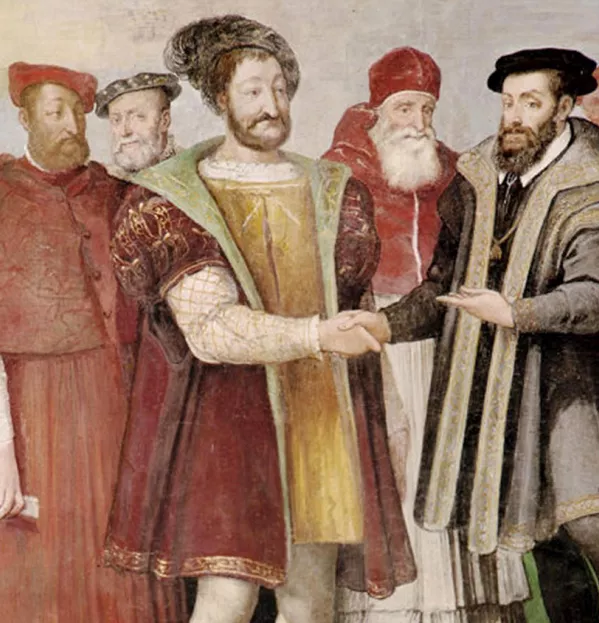
Has the DfE learned to stop worrying and love the blob?

They have been dismissed by ministers as “The Blob” and accused of pumping new teachers full of neuro-myths and outdated orthodoxy.
University education departments have spent the best part of a decade under government attack, with concerted moves to hand control of initial teacher training from higher education directly to schools. By 2015, more than half (51 per cent) of postgraduate entrants to teacher training were on school-led courses - compared with 13.5 per cent of initial teacher training (ITT) places in 2007-08.
But now, there are signs that the tide is turning. At a conference in London last week, the Department for Education’s head of teacher supply, Ben Ramm, said he wanted to rebut the suggestion that the DfE focused exclusively on school-led teacher training.
“I think that was a narrative that was true for a number of years,” he said. “I think that we have seen significant changes in the department over the last year or so.
“We now have an approach that I would describe as pragmatic rather than focused on any specific structural preference for school-led or university led-ITT.
“The secretary of state has been very clear in the speeches she has made that she recognises very clearly... the importance and the value of high-quality university involvement in teacher training, and I think that is very much a direction that we will see sustained and increased in the coming years.”
Applicants ‘vote with their feet’
The more conciliatory approach could be down to the practicalities of coping with a continuing teacher recruitment crisis. The DfE has not yet released the ITT census for September 2016, which will reveal how many would-be teachers are with each provider, but it is already clear that university-led training is still popular with graduates.
We now have an approach I would describe as pragmatic
Last year, the National College for Teaching and Leadership told providers that they could recruit as many trainees as they wanted up to a national limit - and it was university teacher-training courses that were filling up the quickest.
“Despite all the publicity, applicants are voting with their feet and greater numbers are applying for higher education than school-based routes,” said John Howson, visiting professor at Oxford Brookes university. “I don’t think they [the government] have much choice - it’s what the market was telling them.”
‘The mood music’s changed’
Signs that the government is shifting its tone to match that message can be traced back to previous education secretary, Nicky Morgan.
Last year’s White Paper, Educational Excellence Everywhere, said that there would be an important place for high-quality universities in ITT. It stated: “We want the best universities to establish ‘centres of excellence’ in ITT, drawing on their world-leading subject knowledge and research.”
James Noble-Rogers, executive director of the Universities’ Council for the Education of Teachers (UCET), said: “The mood music certainly seems to have changed. The proof of the pudding will of course be in the eating.
“I am cautiously optimistic that the government is taking a more collegiate approach, and UCET will work constructively with them and give credit where it’s due. The country is facing a teacher supply crisis, and we all need to work together to improve both the recruitment and the retention of new teachers.”
It’s not just about teacher training numbers, however. Mr Ramm also told the conference that universities would be included in the ratification of the final award of the new qualified teacher status, which will no longer be awarded at the end of initial teacher training, but instead after a period of teaching.
The now-abandoned Educational Excellence Everywhere had implied - in a less university-friendly passage - that this would be a school-led process. But “we’re in a very different place in terms of thinking about that now”, said Mr Ramm.
Professor Sam Twistleton, director of the Sheffield Institute of Education at Sheffield Hallam University, said that the government was catching up with the reality on the ground, but universities still needed more than warm words.
“To say that universities have a secure future in teacher training is a very positive message,” she said. “Some good things have come out of the introduction of [school-led ITT programme] Schools Direct. It has meant that universities talked more seriously to schools and put them more in a driving position; we’ve always worked together, but senior people got much more involved in how to do it well.
“I think there is a real appetite for people to collaborate. People have gone beyond the early days of being competitive and realise we need to work together.”
You need a Tes subscription to read this article
Subscribe now to read this article and get other subscriber-only content:
- Unlimited access to all Tes magazine content
- Exclusive subscriber-only stories
- Award-winning email newsletters
- Unlimited access to all Tes magazine content
- Exclusive subscriber-only stories
- Award-winning email newsletters
You need a subscription to read this article
Subscribe now to read this article and get other subscriber-only content, including:
- Unlimited access to all Tes magazine content
- Exclusive subscriber-only stories
- Award-winning email newsletters
- Unlimited access to all Tes magazine content
- Exclusive subscriber-only stories
- Award-winning email newsletters